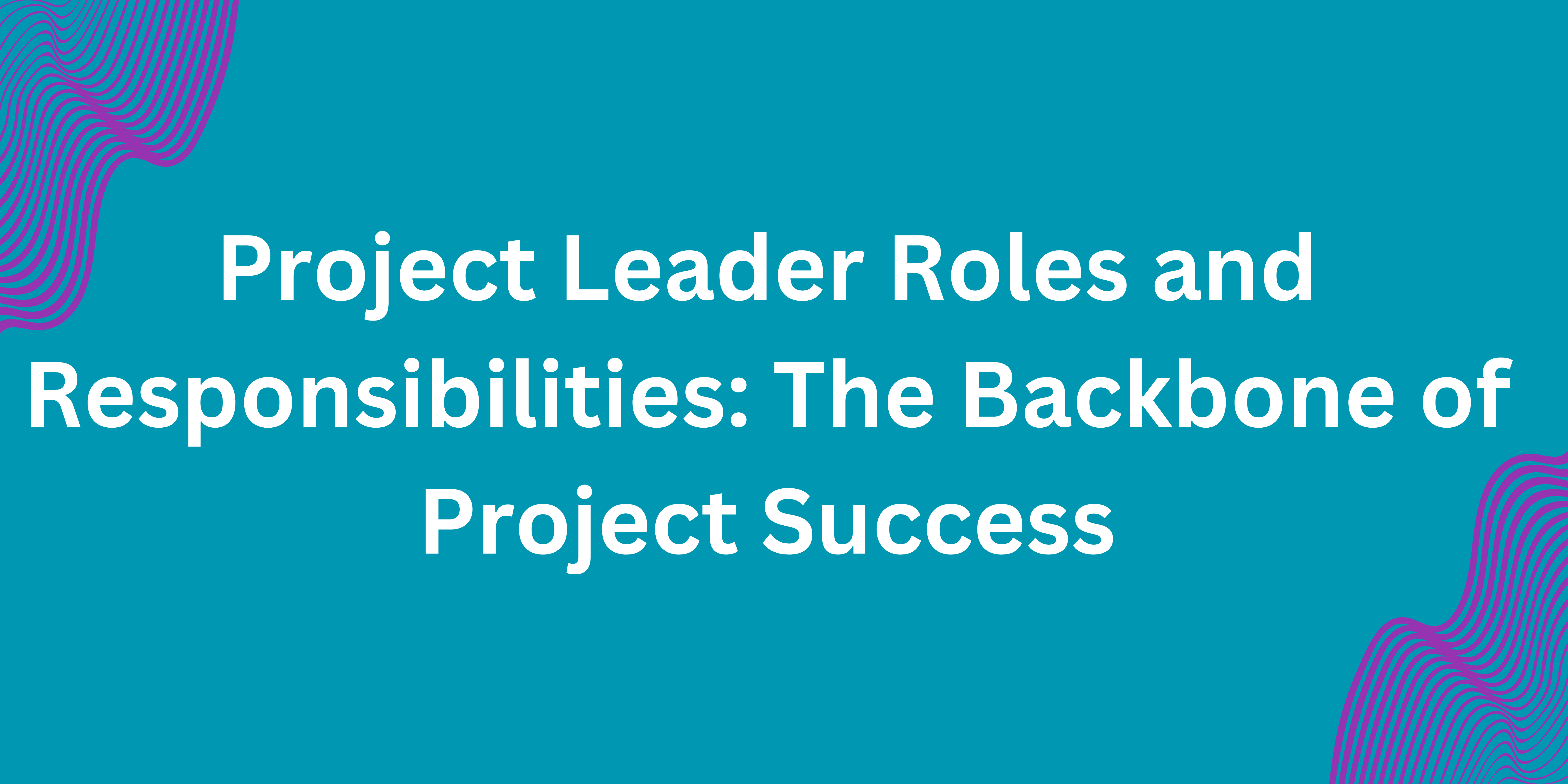25 DEC 2021
By AxiGlobe

Every successful project, whether in software development, construction, marketing, or any other industry, needs a strong project leader at its helm. A project leader is not just a manager—they are a strategist, motivator, communicator, and decision-maker. The role is critical in guiding teams through complex tasks, managing resources, and ensuring that the project aligns with its objectives and delivers the intended results.
In this blog, we will delve into the roles and responsibilities of a project leader, highlighting the skills and attributes necessary for effective project leadership.
A project leader is a person who is responsible for overseeing the execution of a project from start to finish. They are responsible for leading the project team, managing project resources, and ensuring the project is delivered on time, within scope, and on budget. While this role is often confused with that of a project manager, the project leader's focus is broader, encompassing strategic vision, team motivation, and stakeholder communication. In some organizations, the roles of project leader and project manager may overlap, but they generally complement each other.
A project leader wears many hats throughout the course of a project. Here are the primary roles they assume:
A project leader is responsible for setting the strategic direction for the project. They must understand the project's overall goals, the key deliverables, and how the project fits into the larger organizational context. The project leader works closely with senior management, clients, and stakeholders to ensure the project aligns with the company’s long-term vision.
A key responsibility of a project leader is to build and lead a high-performing team. The leader must foster collaboration, manage conflicts, and ensure the team remains focused and motivated throughout the project lifecycle.
A project leader often faces critical decisions, particularly when dealing with unforeseen challenges, roadblocks, or resource constraints. They must weigh the pros and cons of various options, consider the impact on the project, and make informed decisions.
Every project carries some degree of risk, and part of the project leader’s responsibility is identifying, assessing, and mitigating these risks. Risk management is a critical element in ensuring the success of the project.
Communication is a core skill for any project leader. They act as the central point of communication between stakeholders, the project team, and upper management. They need to keep everyone informed, ensure clarity of purpose, and resolve any misunderstandings before they escalate.
A project leader is also accountable for managing resources (human, financial, and material) and ensuring the project stays on track. This involves monitoring schedules, adjusting priorities, and ensuring that resources are used efficiently.
A project leader ensures that the project deliverables meet the required standards and quality expectations. This involves setting clear quality metrics and conducting regular quality checks throughout the project.
Once the project reaches its completion, the project leader plays a role in ensuring the project is closed properly. This includes evaluating the project’s success and conducting a post-mortem analysis to identify areas for improvement.
To succeed in their role, a project leader must possess a unique blend of technical, leadership, and interpersonal skills. Here are some key qualities:
The role of a project leader is multi-faceted and crucial to the success of any project. From strategic vision and decision-making to team motivation and risk management, a project leader must juggle many responsibilities to ensure the project delivers value on time and within budget.
Whether you're already in a project leadership role or aspire to be, developing the right skills and understanding the core responsibilities will equip you for success. A great project leader not only keeps a project on track but also inspires the team, nurtures collaboration, and ensures that stakeholders are satisfied with the end result. With the right leadership, any project can be a success!
Oh! We recently winded up one batch, but no worries. We have a few more in the coming weeks.
Just opt-in for the updates about dates, prices, and curriculum with your preferences!
We keep you posted about the course.
©️2020 - 2025 AxiGlobe All Rights Reserved. The certification names are the trademarks of the respective authorised bodies
 USA
USA
Disclaimer :
Profession Scrum Master (PSM-I®, PSM-II®, PSM-III®), Profession Scrum Product Owner (PSPO-I®, PSPO-II®, PSPO-III®), Profession Scrum Developer (PSD-I®), Scaled Professional Scrum(SPS®),Professional Scrum With Kanban(PSK-I®) , Prove your knowledge of Professional Agile Leadership(PAL-I®), Prove your knowledge of Evidence-Based Management™ (PAL-EBM®), Prove Your Scrum with User Experience Knowledge
(PSU-I®) and Professional Scrum Trainer(PST®) are registered trademarks of Scrum.org®. AxiGlobe INC is a Professional Training Network member of Scrum.org®.
Certified Business Analysis Professional (CBAP®), Certification of Capability in Business Analysis(CCBA®), Entry Certificate in Business Analysis(ECBA®), Agile Analysis Certification(AAC®), Certification in Business Data Analytics(CBDA®), Certificate in Cybersecurity Analysis(CCA®), Certificate in Product Ownership Analysis(CPOA®) are registered trademarks of International Institute of Business Analysis(IIBA®). AxiGlobe INC is an Premier Level Endorsed Education Provider of IIBA®.
SAFe Agilist Certification (SA®), SAFe Program Consultant Certification (SPC®),SAFe Program Consultant Trainer Certification (SPCT®),SAFe Practitioner Certification(SP®),SAFe Release Train Engineer Certification (RTE®),SAFe Scrum Master Certification (SSM®),SAFe Advanced Scrum Master Certification (SASM®),SAFe DevOps Practitioner Certification(SDP®),Agile Product Manager Certification (APM®),Lean Portfolio Manager Certification (LPM®),Product Owner / Product Manager Certification (POPM®),SAFe Architect Certification (ARCH®),Agile Software Engineer Certification (ASE®) and SAFe Government Practitioner Certification (SGP®), Scaled Agile Framework® and SAFe® are registered trademarks of Scaled Agile, Inc.®. AxiGlobe INC is a Silver Partner of Scaled Agile, Inc®.
DevOps Foundation®, DevOps Leader®, SRE Foundation℠, SRE Practitioner℠, DevSecOps Foundation℠, Continuous Testing Foundation℠, Certified Agile Service Manager®, Continuous Delivery Ecosystem Foundation℠ and Value Stream Management Foundation® are registered trademarks of DevOps Institute. AxiGlobe INC is a Registered Education Partner (REP) of the DevOps Institute (DOI) ®. Read more...
